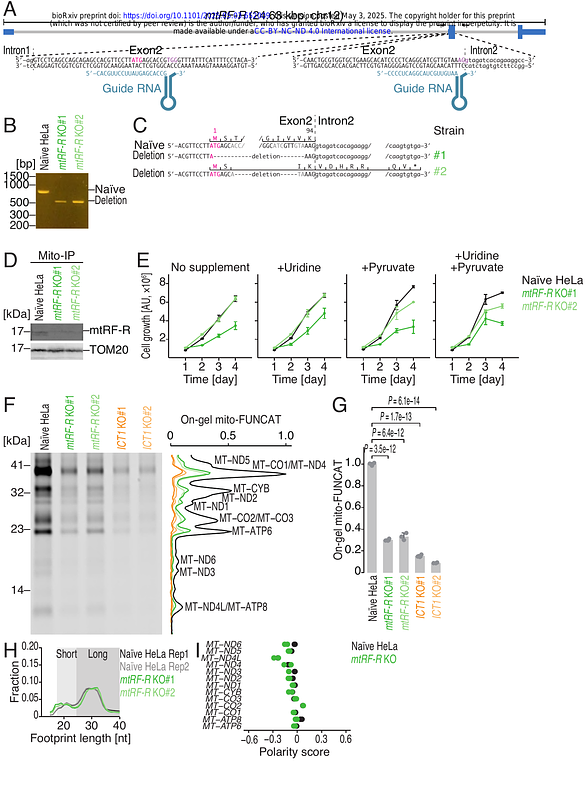Mitochondrial translation termination, recycling, reinitiation, and rescue for in-frame and out-of-frame contexts

Mitochondrial translation termination, recycling, reinitiation, and rescue for in-frame and out-of-frame contexts
Wakigawa, T.; Mito, M.; Fang, Q.; Itoh, Y.; Shinkai, Y.; Iwasaki, S.
AbstractBecause mitochondria diverged from a bacterial ancestor during evolution, the mitochondrial protein synthesis system includes both mRNAs and translation factors with unique characteristics. However, the molecular mechanisms underlying translation termination, recycling, and quality control remain unclear. Here, via high-resolution mitochondrial Ribo-Seq and Disome-Seq, we revealed: the specificity of release factors for different kinds of stop codons; the role of mtRF1 in vertebrates, which do not have noncanonical stop codons in their main ORFs; the recycling-coupled translation of internal ORFs; and the rescue of mitoribosomes in the early elongation stage. mtRF1L is a universal release factor that recognizes all stop codons, whereas mtRF1 recognizes only AGA/AGG noncanonical stop codons. Additionally, mtRF1 terminates the translation of out-of-frame ORFs that end with AGA/AGG. We also found that mtRRF and mtIF3 are required for mitoribosome recycling on stop codons and for the reinitiation of internal ORF translation. Mitoribosomes that stall at start codons are major substrates of the rescue factors ICT1, mtRF-R, and mtRES1. Moreover, HEMK1-mediated methylation of release factors enhances the termination reaction on stop codons. Our results provide insights into the mitoribosome dynamics that are associated with the completion of protein synthesis.